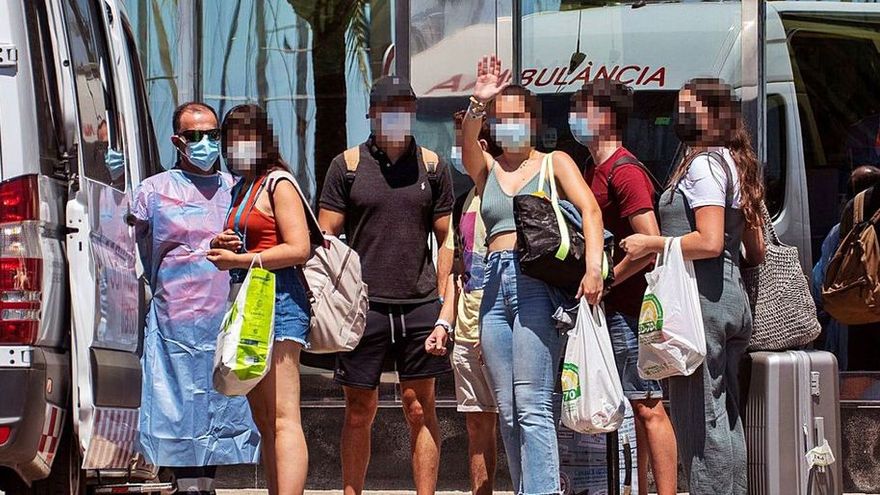Despite the fact that Castilla y León is calling for a curfew to stop the fifth wave and that the alert committee – a group of experts who advise the Government – recommends “limiting movement” after a certain time at night, the Minister of Health, Carolina Darias, has just made it clear that curfew “is not on the table” even though the number of infections is rampant among the younger population.
Curfew is a measure that affects fundamental rights and that the communities cannot approve on their own unless there is a state of alarm. “The alert committee meets periodically and makes proposals, which are evaluated by the autonomous communities. Each community is free to adopt the initiatives it deems appropriate. Our role is to support and coordinate,” said Darias.
The minister’s appearance before the press after meeting with health advisors began with a devastating statistic: in just a few weeks the average incidence in Spain has risen by 137% to 252 cases per 100,000 inhabitants. Despite this, Darias explained that the fifth wave is quite different from previous ones and urged less focus on cumulative incidence than on other indicators, such as hospitalisation levels, ICU occupation and mortality, which are radically lower now than in the first waves of the pandemic. As a younger population is infected (with less serious health effects) hospitals are not saturated, as happened in 2020, but primary care – which treats the mildest cases – is now on the verge of collapse in many autonomous regions, for example, Catalonia.
The average cumulative incidence in Spain (252 cases per 100,000 inhabitants) is very different by age group. Those between 12 and 29 years of age -a segment of the population vaccination has barely reached- are the most affected, with over 600 cases per 100,000 inhabitants.
“We have to empathise with young people. They are the present and the future of our country. We have to ask them for responsibility but not blame them. We have all been young. We understand their fatigue and their desire to have fun, but as they were able to take care of their grandparents so well at the beginning of the pandemic, now we ask them to take care of their parents and themselves. We are asking just a little more of them. And, of course, we encourage them to get vaccinated,” she said.
According to the minister, the government was not too hasty in “welcoming smiles” and removing the requirement for face masks outdoors as long as social distance is respected. “It was a sensible move. The mask is still with us, indoors and outdoors when 1.5m social distance cannot be respected,” she stressed after expressing concern about the crowds of young people in botellones every weekend in many cities and towns, as well as the Mallorcan macro outbreak following the end-of-year trip that has affected 12 communities. “We know there is fatigue. We have had a year and a half of pandemic. But the virus is there and going after those who are not protected,” warned the Minister for Health.
The measures that are on the table to tackle the new wave are contact tracing of infected people and screening to detect asymptomatic positives. Health has made tracers from the Ministry of Defence available to the autonomous regions, as well as 5 million tests.
Once again, Darias insisted on the importance of vaccination to combat the coronavirus. Almost 27 million people have already received at least one dose and 20 million, the full course. “The rate of vaccination is impressive. We must thank the resiliance of the national health system and nursing professionals,” said Darias after noting that some regions are already overlapping age groups so that younger people also receive the vaccine.

